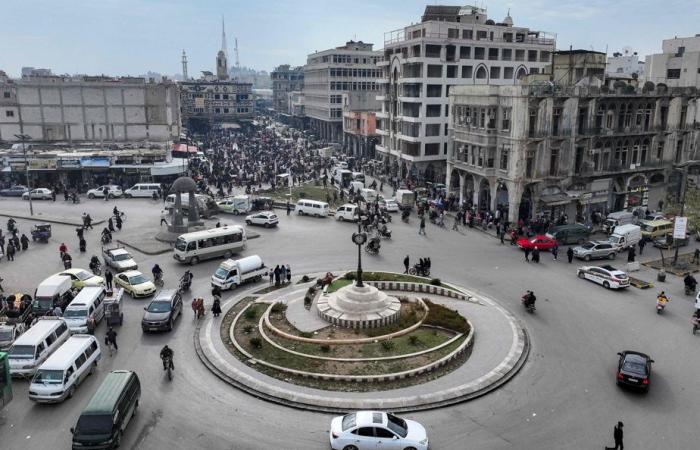(Damascus) The president of the International Committee of the Red Cross (ICRC), Mirjana Spoljaric, said determining the fate of people missing during Syria’s civil war would be a “huge challenge” that would take years.
Posted at 7:28 a.m.
Maher Al Mounes
Agence France-Presse
“Identifying the missing and informing the families of their fate will be a huge challenge,” said Ms.me Spoljaric in an interview with AFP late Saturday afternoon in Damascus.
Thousands of people were arrested and detained after a violent crackdown on anti-government protests began in 2011 under President Bashar al-Assad’s rule, and their families have not been heard from since.
Many people are believed to have been buried in mass graves after being tortured in the country’s prisons during the war that left more than half a million dead.
After the arrival at the head of the country of Islamist rebels who ousted Mr. Assad from power on December 8, thousands of detained people were released but many Syrians are still looking for traces of missing loved ones.
Mme Spoljaric said the ICRC was working with interim authorities, NGOs and the Syrian Red Crescent to collect data, in order to provide answers to families as quickly as possible.
But “the task is enormous. It will take years to clarify the situation and be able to inform everyone concerned. And there will be cases that we will never be able to identify,” she added.
So far, we’ve tracked 35,000 cases, and since we set up a new helpline in December, we’ve added 8,000 more requests.
Mirjana Spoljaric, president of the International Committee of the Red Cross
“But this is only a part” of the total number of missing people, observed the former Swiss diplomat at the head of the ICRC since the end of 2022.
“Save the evidence”
The ICRC offered its collaboration to the new authorities “to put in place the institutions necessary for the management of the available data, the protection and the collection of what must be collected,” she said.
In December, the NGO Human Rights Watch urged the new Syrian authorities to “secure, collect and safeguard evidence, including that from mass grave sites and government archives, which will be essential in future criminal trials.”
She also called for cooperation with the ICRC, which could “provide essential expertise” to help safeguard the archives and clarify the fate of the missing.
“We cannot rule out that data will be lost, but we must work quickly to preserve what exists and store it centrally, so that individual cases can be tracked,” said Ms.me Spoljaric.
More than half a century of unchallenged rule by the Assad clan abruptly ended on December 8, after the arrival of rebels who took power after a dazzling eleven-day offensive. Mr. Assad fled to Moscow.
The Syrian Observatory for Human Rights (OSDH), a UK-based NGO with an extensive network of sources in Syria, says that more than 100,000 people have died in detention since 2011 due to torture or deplorable health conditions.
NGO reports explosions at munitions depots near Damascus
Several explosions rang out on Sunday in ammunition warehouses belonging to Bashar al-Assad’s army near the Syrian capital Damascus, the Syrian Observatory for Human Rights (OSDH) said.
“Violent explosions resounded around the capital Damascus today, possibly due to an Israeli strike,” said the NGO.
Questioned by AFP in Jerusalem on Sunday, the Israeli army, which has repeatedly targeted sites of the ousted Syrian president’s army in recent weeks, claimed “not to be at the origin” of these explosions. .
The explosions took place “in ammunition depots belonging to the forces of the former regime, near the town of Kiswé in the suburbs of Damascus”, according to the Observatory, which did not report any casualties.






